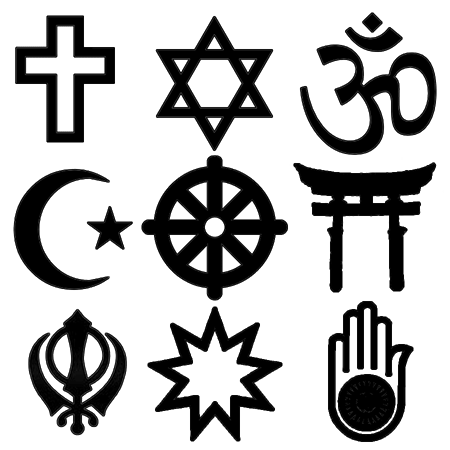The religionary side of World Wide Web
(Revised at Sept. 29, 2007) World Wide Web is a religion. But please don't be panic if you are either an atheist or a fundamentalist. World Wide Web is not a "standard" religion. It is a religion-like Atheism. World Wide Web directly addresses the fundamental of all religions --- the seeking to eternity.
World Wide Web is a religion. But please don't be panic if you are either an atheist or a fundamentalist. World Wide Web is not a "standard" religion. It is a religion-like Atheism. World Wide Web directly addresses the fundamental of all religions --- the seeking to eternity.
Every religion is an attempt to answer one essential question: what does eternity mean to us? The difference among various religions including Atheism is basically the different answers to this question. To Christians the answer is Jesus Christ; to Muslims the answer is Allah; to Jewish people the answer is Jehovah in the Jewish Bible; to Buddhists the answer is transmigration of the soul; to atheists the answer is that there is no eternity, one's life terminates immediately after death without any form of successors. To WWW users the implicit answer is that we can keep ourselves mentally eternal on the Web.
Almost everyone, no matter whether they believe in Gods or which God they believe, agrees on the existence of immortality. There is, however, difference between physical immortality, spiritual immortality, and artificial immortality. Many religions believe in spiritual immortality; our soul can last forever after the death of body. Some religions even seek to the chance of physical immortality; let body live forever. In contrast, both atheists and theists accept certain form of artificial immortality, i.e., transferring one's consciousness (except self-awareness) into an alternative media that can be assumed staying forever. The fundamental difference between artificial immortality and spiritual immortality is that the latter one also includes the resurrection of humans' ultimate identity --- ones' self-awareness.
Humans have experienced artificial immortality in many forms. Writing books, composing musics, producing artifacts, building constructions, and worshiping antecessors are several typical forms to achieve artificial immortality. We regard ourselves being artificially immortal when our consciousness is kept in history and remembered by our posterity through our publications and artifacts. Based these inherited work, later generations can restore part of the precious consciousness of their ancestors. By this sense, these ancestors reach certain level of immortality though they cannot reclaim the ownership over these consciousness (i.e. the restore of self-awareness).
World Wide Web is a revolutionary new way to achieve artificial immortality. In history, artificial immortality was a reachable but expensive goal. Only the greatest work of mankind could be kept; let it alone the requirements of surviving from wars and natural disasters. But the invention of WWW gives normal persons a cheap and convenient way to keep their consciousness in history for long time. This is the first time ever normal people have a chance be remembered by not requiring great thoughts. Anyone can materializes their consciousness on web even if the thoughts are silly. This is poor man's revolution.
By this sense of artificial immortality WWW is like a religion. Religions addict people into them by the promise of providing immortal future. In similar, WWW addicts web users into it by the promise of providing artificial immortality on the Web. This satisfaction of intrinsic nature of mankind is an essential reason (or probably the most essential reason) why World Wide Web engages such a great success in history. Faith and intrinsic desire are the ones that can never be evaluated by money and time.
This faith to artificial immortality is the fundamental driving force to web evolution. In one of my previous posts, I presented that web evolution is a history of incrementally cloning the consciousness of individual web users. The goal of web evolution is to improve this cloning procedure to its deeper level. Ultimately, we may be able to mentally resurrect any web user by the preserved consciousness. If this time could ever come, no one will die with respect to the others. Pitifully, however, everyone of us could still not live longer than our one life, with respect to ourselves.

No comments:
Post a Comment